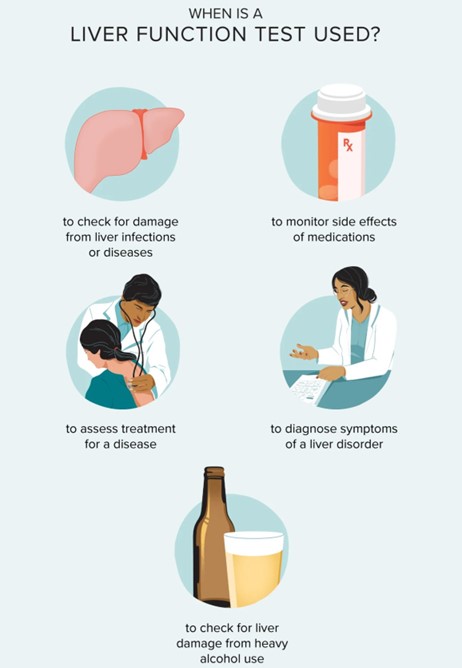More Questions
More Questions ( 14 Questions)
A nurse is caring for a client who has chronic myeloid leukemia (CML) and is receiving imatinib, a tyrosine kinase inhibitor, as part of targeted therapy. Which of the following laboratory tests should the nurse monitor for adverse effects of this drug?
Liver function tests should be monitored for adverse effects of imatinib, as this drug can cause hepatotoxicity and liver failure in some patients³⁴. These are serious side effects that can affect the liver's ability to metabolize drugs and toxins.
Serum electrolytes are not directly affected by imatinib, as this drug does not cause significant changes in sodium, potassium, calcium, or magnesium levels³. However, electrolyte imbalances may occur due to other factors such as dehydration, diarrhea, vomiting, or kidney problems.
Coagulation studies are not directly affected by imatinib, as this drug does not cause significant changes in prothrombin time, partial thromboplastin time, or international normalized ratio³. However, bleeding disorders may occur due to other factors such as thrombocytopenia, anemia, or vascular damage.
Liver function tests are the only laboratory tests that should be monitored for adverse effects of imatinib, as this drug can cause serious liver damage in some patients. The other tests are not directly affected by imatinib, but may be influenced by other factors or conditions. The nurse should also monitor for other signs and symptoms such as nausea, vomiting, diarrhea, rash, edema, fatigue, infection, etc. The nurse should report any abnormal findings to the doctor and intervene as needed.
Choice A reason:
Liver function tests should be monitored for adverse effects of imatinib, as this drug can cause hepatotoxicity and liver failure in some patients³⁴. These are serious side effects that can affect the liver's ability to metabolize drugs and toxins.
Choice B reason:
Serum electrolytes are not directly affected by imatinib, as this drug does not cause significant changes in sodium, potassium, calcium, or magnesium levels³. However, electrolyte imbalances may occur due to other factors such as dehydration, diarrhea, vomiting, or kidney problems.
Choice C reason:
Coagulation studies are not directly affected by imatinib, as this drug does not cause significant changes in prothrombin time, partial thromboplastin time, or international normalized ratio³. However, bleeding disorders may occur due to other factors such as thrombocytopenia, anemia, or vascular damage.
Choice D reason:
Liver function tests are the only laboratory tests that should be monitored for adverse effects of imatinib, as this drug can cause serious liver damage in some patients. The other tests are not directly affected by imatinib, but may be influenced by other factors or conditions. The nurse should also monitor for other signs and symptoms such as nausea, vomiting, diarrhea, rash, edema, fatigue, infection, etc. The nurse should report any abnormal findings to the doctor and intervene as needed.

